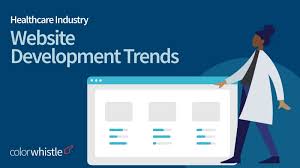
The Importance of Healthcare Website Development
In today’s digital age, the healthcare industry is rapidly evolving to meet the needs of patients and healthcare providers. One crucial aspect of this evolution is the development of healthcare websites that offer a wide range of benefits for both patients and professionals.
Enhancing Patient Experience
Healthcare websites play a vital role in enhancing the overall patient experience by providing easy access to information, appointment scheduling, telemedicine services, and online consultations. Patients can conveniently access their medical records, lab results, and prescription refills from the comfort of their homes.
Improving Communication
Effective communication between patients and healthcare providers is essential for delivering quality care. Healthcare websites facilitate seamless communication through secure messaging systems, chatbots for basic queries, and video conferencing for virtual appointments.
Increasing Efficiency
By streamlining administrative tasks such as appointment booking, billing management, and prescription requests, healthcare websites help in improving operational efficiency within healthcare organisations. This allows healthcare professionals to focus more on patient care.
Empowering Patients
Empowering patients with access to reliable health information through educational resources, wellness tips, and interactive tools promotes proactive healthcare management. Patients can make informed decisions about their health and well-being with the help of online resources provided by healthcare websites.
Ensuring Data Security
Data security is a top priority in the healthcare sector due to the sensitive nature of patient information. Healthcare websites implement robust security measures to safeguard patient data against cyber threats and ensure compliance with data protection regulations.
Conclusion
Healthcare website development plays a crucial role in transforming the way healthcare services are delivered and accessed. By leveraging technology to enhance patient experience, improve communication, increase efficiency, empower patients, and ensure data security, healthcare websites are shaping the future of healthcare delivery.
Essential Tips for Developing an Accessible and Secure Healthcare Website
- Ensure the website is user-friendly and accessible to people with disabilities.
- Include clear navigation and search functionality for easy access to information.
- Provide accurate and up-to-date medical information from reliable sources.
- Implement strong security measures to protect patient data and privacy.
- Optimize the website for mobile devices to reach a wider audience.
- Offer online appointment booking and telehealth services for convenience.
Ensure the website is user-friendly and accessible to people with disabilities.
To ensure inclusivity and accessibility in healthcare website development, it is essential to prioritise creating a user-friendly interface that caters to the needs of individuals with disabilities. Implementing features such as screen reader compatibility, keyboard navigation options, alt text for images, and colour-contrast adjustments can significantly enhance the user experience for those with visual or motor impairments. By making the website accessible to all users, including those with disabilities, healthcare organisations can effectively reach a wider audience and provide equitable access to vital healthcare information and services.
Include clear navigation and search functionality for easy access to information.
To enhance user experience on healthcare websites, it is essential to incorporate clear navigation menus and robust search functionality. By providing intuitive navigation and a powerful search feature, visitors can easily locate the information they need, such as medical services, doctor profiles, appointment scheduling, and health resources. Clear navigation and search functionality not only improve accessibility but also help users quickly find relevant information, ultimately enhancing their overall experience on the website.
Provide accurate and up-to-date medical information from reliable sources.
It is essential for healthcare websites to provide accurate and up-to-date medical information sourced from reputable sources. By ensuring that the content on the website is reliable, patients can access trustworthy information to make informed decisions about their health. This practice not only builds trust with users but also promotes patient safety and well-being by offering guidance based on current medical knowledge and best practices in healthcare.
Implement strong security measures to protect patient data and privacy.
It is imperative to implement robust security measures in healthcare website development to safeguard patient data and privacy. With the sensitive nature of medical information, ensuring the confidentiality and integrity of data is paramount. By incorporating strong encryption protocols, access controls, regular security audits, and compliance with data protection regulations such as GDPR, healthcare websites can instil trust among patients and healthcare professionals while mitigating the risks of data breaches and cyber threats. Protecting patient data not only upholds ethical standards but also fosters a secure digital environment for delivering quality healthcare services.
Optimize the website for mobile devices to reach a wider audience.
To maximise the reach and accessibility of a healthcare website, it is essential to optimise it for mobile devices. By ensuring that the website is responsive and user-friendly on smartphones and tablets, healthcare providers can cater to a wider audience who prefer to access information on the go. Mobile optimization not only enhances the user experience but also improves the website’s visibility in search engine results, ultimately increasing engagement and reaching more potential patients seeking healthcare services online.
Offer online appointment booking and telehealth services for convenience.
To enhance the convenience and accessibility of healthcare services, it is highly beneficial for healthcare websites to incorporate features such as online appointment booking and telehealth services. By offering patients the ability to schedule appointments online and access telehealth consultations from their homes, healthcare providers can streamline the appointment process and improve patient satisfaction. This not only saves time for both patients and healthcare professionals but also ensures that individuals have convenient access to medical care when needed, ultimately enhancing the overall patient experience.
